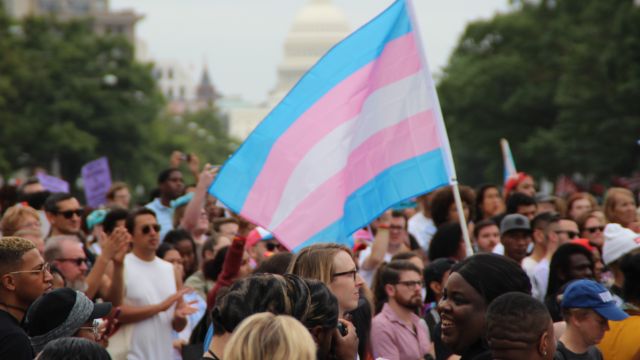DC is going to hold the first national TDOV gala on Easter Sunday
In a time marked by deep divisions and political discourse that often crosses into the realm of personal attacks, the call for leadership that embodies respect, inclusivity, and a vision for a better future has never been more urgent.
Recent comments calling out specific communities for their political affiliations not only lack the nuance required in such discussions but also stray dangerously close to reinforcing stereotypes that have no place in a society striving for equality and understanding.
The Jewish community, for example, has been a vibrant part of American political life, contributing to a diverse spectrum of political thought and action. Labeling such a community with broad strokes not only dismisses this rich tapestry of engagement but also sows division where there should be dialogue. True leadership recognizes the value of every community’s contribution to the democratic process.
Moreover, the complex geopolitical landscape, particularly in regions like the Middle East, requires a nuanced understanding and approach. The ongoing conflict and peace efforts between Israel and Palestine are a case in point.
Advocating for peace and a two-state solution does not equate to being against either party involved. It’s a stance that believes in the possibility of coexistence and mutual respect. Leaders like Senator Chuck Schumer have echoed this sentiment, emphasizing that peace requires concessions and understanding from all sides involved.
Criticisms of political figures, whether it be Prime Minister Netanyahu or former President Trump, should not be misconstrued as opposition to their respective countries.
It’s possible to disagree with policies or approaches without undermining the state or its people. This distinction is crucial in fostering a political environment where constructive criticism is not only accepted but encouraged as a means to achieve better governance.
The rhetoric used by public figures, especially those with significant influence, matters. Derogatory comments targeting individuals or communities based on their abilities, choices, or identities only serve to deepen the divides. It’s incumbent upon leaders to rise above pettiness and lead by example, championing policies and behaviors that uplift rather than demean.
Looking ahead, the choice of leadership is not merely about policy but also about the values that will define our community and our approach to the world’s challenges. President Biden’s tenure has been marked by efforts to address both domestic and international challenges with a focus on inclusivity, equity, and sustainability.
From infrastructure to education, the emphasis has been on creating opportunities and addressing long-standing inequities.
Contrastingly, the tenure of President Trump was characterized by policies and rhetoric that often polarized. His administration’s actions in areas such as women’s rights, racial equality, and climate change, among others, sparked significant debate and concern over the direction in which the country was headed.
Evaluating the impact of these administrations on the fabric of American society and its place in the global community requires a critical examination of not just their policies but the principles that guided them. The choice between continuing on a path of progress and inclusivity or reverting to policies that prioritize the few over the many is stark.
In reflecting on the state of the nation and its future, it’s essential to consider the leadership that aligns with the values of respect, equality, and justice. The achievements of the past few years under President Biden, contrasted with the challenges of the previous administration, offer a clear indication of the potential for positive change.











